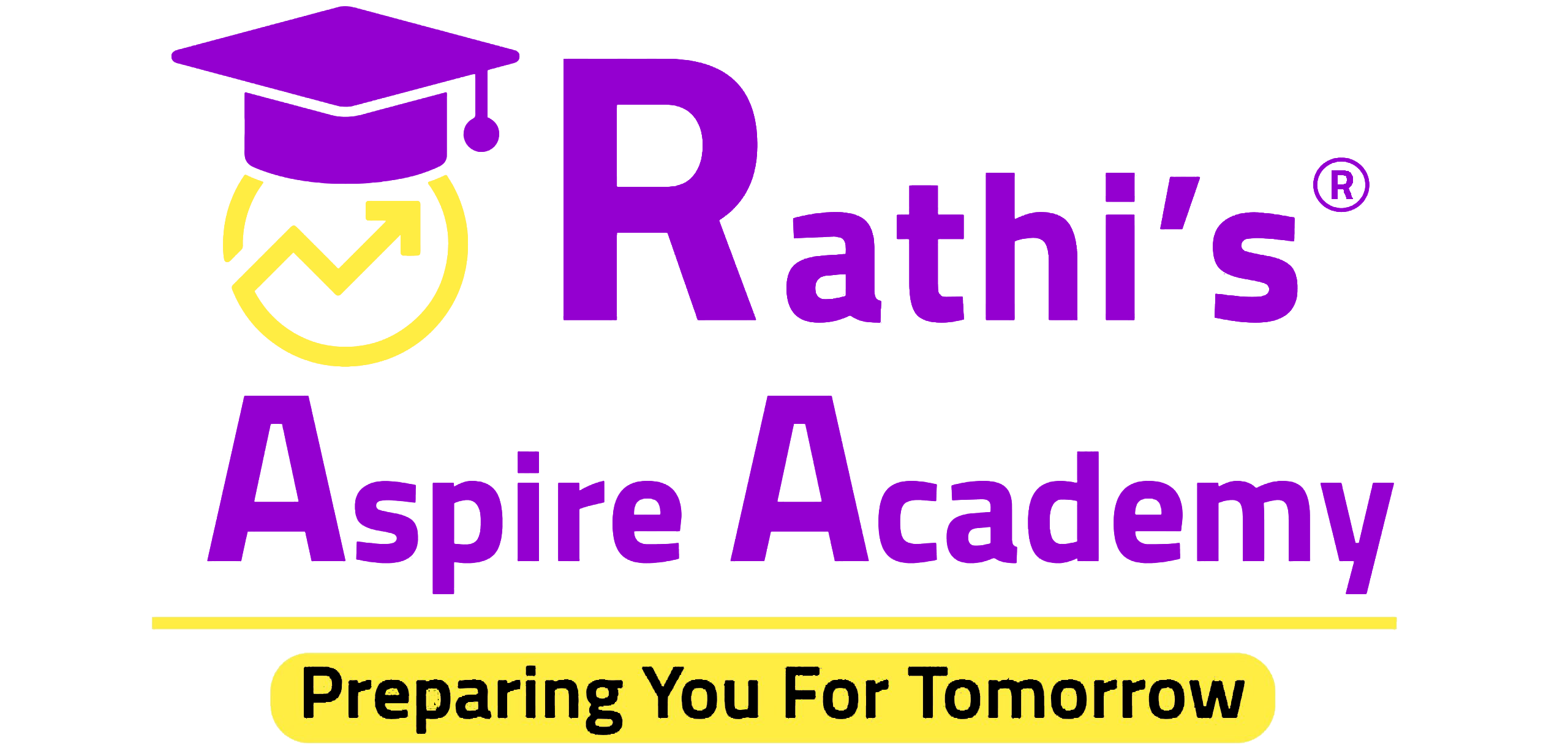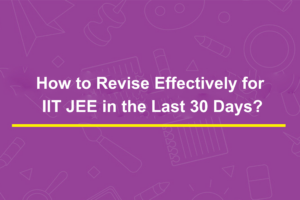IIT JEE Rank vs College Predictor: What Can You Actually Expect?

Preparing for the IIT JEE is a major milestone for aspiring engineers and their families. Each year, lakhs of students take this exam hoping to land seats in prestigious institutes. Your rank in the IIT JEE can dramatically influence which colleges and branches you can access. Naturally, students and parents often wonder what rank will secure admission where – and the online college predictor tool promises some guidance.
In this article, we’ll explain what these predictors are, how they work, and what they really tell you (and what they don’t). We’ll also compare what to expect for NITs versus IITs at different ranks, and why expert advice from Rathi’s Aspire Academy can still be invaluable.
What Is a College Predictor Tool?
A college predictor is an online tool that tries to estimate which colleges and branches you might get based on your JEE rank or score. These tools are often provided by education websites (like Careers360, Collegedunia, etc.) and use past data to make suggestions. In simple terms, you enter your IIT JEE Main or Advanced rank (and sometimes category, state, and preferred course), and the tool outputs a list of colleges/branches you could likely get. For example, Collegedunia describes their JEE college predictor as a cutting-edge tool designed to help students estimate their chances of securing admission to engineering colleges based on their IIT JEE Main performance. In other words, the predictor is there to forecast possibilities – it’s not an official guarantee, but rather an aid to planning your college options.
How Do College Predictors Estimate Your College?
College predictor tools typically work in a few steps:
- Input Details (You enter your IIT JEE rank or percentile and other details)
- Data Analysis (The tool’s algorithm compares your input to historical data)
- Output Recommendations (Based on its analysis, the tool gives you a probable list)
In practice, using a predictor is straightforward: you enter your rank and details, hit “predict,” and see a ranked list of colleges.
Factors Affecting JEE Rank Prediction
Several factors influence how ranks translate into college predictions. Key factors include:
- Number of Candidates
- Exam Difficulty & Normalization
- Ties and Scoring
- Reservation
- Seat Matrix
- Counselling Rounds
In short, predictors assume that the new year will be similar to past years in terms of difficulty, number of applicants, and seat availability. Any change in those factors can make the JEE rank prediction slightly off. That’s why any predictions are estimates, not promises. Always keep a margin of safety in your expectations (such as listing colleges whose past closing ranks are slightly higher than your predicted range).
Opening and Closing Ranks: What They Really Mean
When using these tools or researching colleges, you will see terms like opening rank and closing rank. These are simply the cutoffs from past counseling. Here is a brief description:
- Opening Rank: the best (lowest-numbered) rank of a student admitted to that course in a given round. In other words, the rank of the first seat filled.
- Closing Rank: the worst (highest-numbered) rank admitted. This is the rank of the last seat filled.
In practical terms, your rank must fall between these two numbers (inclusive) to get that seat. For instance, if the closing rank for Computer Science at an IIT was 1240 in the past year, that means all students ranked 1 through 1240 got in. Anyone ranked above 1240 would have missed that branch.
Remember that there are separate opening/closing ranks for each category and course. Also, cutoffs move each year and between rounds. A seat may have an opening/closing rank of 730–1240 in one year, but in the next year, it could be higher or lower depending on demand and exam difficulty. Therefore, predictor tools use past trends to guess where the next cutoff might fall, but small shifts are always possible.
NIT vs IIT: What to Expect Based on Your JEE Rank
Students often ask: “How do I know if my rank is for an NIT or an IIT?” The answer depends on both your rank and which exam you cleared:
- JEE Main (for NIT/IIIT seats): Admission to NITs, IIITs, and other government colleges is based solely on your JEE Main rank (All India Rank).
- JEE Advanced (for IITs): Only students who clear JEE Main are eligible to attempt IIT JEE Advanced. Admission to IITs depends on your IIT JEE Advanced rank.
In general, IITs demand much higher ranks than NITs. For example, top IIT programs often close below rank 1000-2000. At IITs, only the very highest ranks get the most popular branches. In contrast, NITs and IIITs fill seats further down the rank list.
To illustrate, consider some actual cutoff numbers: In the 2024 JoSAA round, NIT Warangal’s top Computer Science branch had an opening/closing rank of about 755–2698. NIT Calicut’s CSE had 4488–8965. That means a student ranked, say, 3000 could have gotten CSE at Warangal or Calicut (in 2024) in the General category. Meanwhile, those ranks would not reach the top IITs – many IIT CSE branches closed under 1000–2000. For instance, Chemical Engineering at a prominent IIT had a closing rank of around 1240 (Gen).
In plain terms, if your predicted rank is in the lower thousands or above, you should plan for top NITs or IIITs. Ranks up to 2000 might access the best NIT branches; ranks in the 2000–5000 range may get good branches at mid-tier NITs; beyond that, many NITs have seats. Only ranks in the top few hundred or thousand (in JEE Advanced cutoff) will secure seats at coveted IIT branches.
IIT JEE Rank vs College Predictor: How Accurate Are They?
While these tools use serious data, their accuracy is inherently limited by real-world variability. Many predictor sites cite strong methodology. Hence, predictors can be useful guides. However, it’s crucial to keep in mind all tools have disclaimers. In summary, a good predictor uses honest data and smart algorithms, but it can’t see the future. Exam difficulty, extra attempts, state quotas, or unexpected admission changes can all throw off the JEE rank prediction.
Often various common mistakes by the students can also affect the accuracy of these tools. Even a technically sound predictor can be misused. Common pitfalls include:
- Treating predictions as guarantees
- Input errors
- Ignoring categories or state quota
- Using the wrong predictor
- Overlooking second choices
- Skipping research
Why Personalized Counseling Still Matters
With so many online tools available, you might wonder: why bother with human counselors? The truth is, that personalized guidance adds value that no generic predictor can. A counselor understands you – your interests, academic strengths, weaknesses, and career aspirations – and can interpret your rank in that context.
For example, Rathi’s Aspire Academy emphasizes that understanding yourself is an important part of career and educational development. After finishing 12th grade, students are often puzzled by social pressure, limited guidance, or a lack of clarity about their own abilities. As the academy notes, counselors “can effectively address” this confusion by matching careers to personal traits. In a counseling session, an experienced mentor might say, “Your rank is great for Electronics, but do you love coding?” or “This NIT branch has strong industry tie-ups, and your profile fits it.” These tailored insights go beyond what a one-size-fits-all algorithm can provide.
Ultimately, tools and counselors should work hand-in-hand. A predictor gives you a head start on a short list of colleges; a counselor helps you validate and possibly improve that list, adapt as needed, and plan your next steps with confidence.
Rathi’s Aspire Academy: Helping You Navigate JEE Admissions with Confidence
When you need help beyond what an online tool can offer, Rathi’s Aspire Academy (RAA) is here to guide you. RAA is a Pune-based coaching institute that specializes in IIT JEE and NEET preparation for 11th-12th students. What sets RAA apart is its comprehensive support: apart from classroom coaching, we offer career counseling, DMIT-based personality profiling, and mentorship throughout the entire counseling process.
If you want personalized assistance, we encourage you to reach out. You can contact their team at +91 77966 31000 (Mon-Sat, 11 am–8 pm) for guidance on courses and admissions. You can also visit our branch physically during the opening hours and our representatives will be ready to attent you to the best of their intentions and efforts !!
Final Thoughts: Using College Predictors Wisely
College predictors can be useful tools in your IIT JEE journey, but they are just one piece of the puzzle. Use them to inform your strategy, not dictate it. To wrap it up we can say that a college predictor tool can reduce stress by narrowing choices, but they don’t replace good preparation or personalized guidance. Understand how they work and their limits, use them as part of a well-rounded plan, and seek expert counseling – this way you can approach JEE admissions with confidence, knowing you’ve covered all angles. Meanwhile, RAA’s unwavering support extends to every student who wants to secure his or her dream college.



